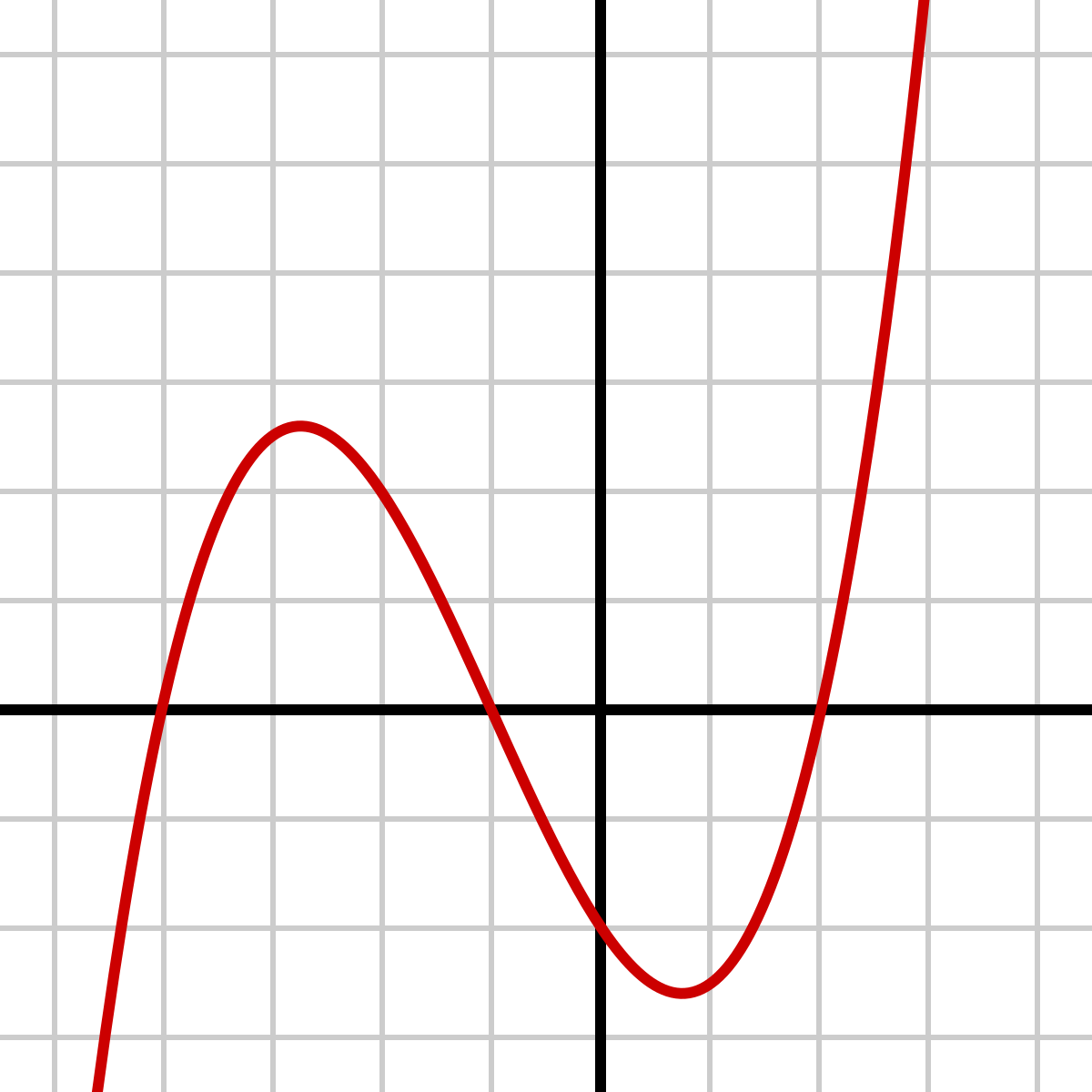So, the thought came to me of solving a cubic equation. I've done it a few times before, but it has been years. I know how to solve quadratics, so I was thinking that if I could reduce the cubic to a quadratic, then I could solve the quadratic for x and thus get my cubic solutions. Everything went smoothly until I reached a point where I have an equation of the form ax2+bx+c+xd=0. This form is the quadratic reduction of the original cubic of the form ax3+bx2+cx+d=0. I'm wondering how I should factor this, so that I can then solve for x. Here's what I have so far:
Solve for x
x3−6x2+2x+3=0
Subtract 3 from both sides to get
x3−6x2+2x=−3
Multiply both sides by x1 to get
x2−6x+2=x−3
Add x3 to both sides to get
x2−6x+2+x3=0
And here I am, stuck with this xd term in my quadratic and not knowing how to factor a quadratic with such a term in it. When I try to find an answer to my question, all I get is how to factor a quadratic that has fractional coefficients, which is not at all the same as factoring a quadratic with a xd term. So, how can I go about factoring this quadratic with a xd term in it? Do I have to move the xd term back to the other side and then factor x2−6x+2 as if it equals 0 and then solve for x? Or is there another way to go about it that keeps the right side equal to 0?
Solve for x
x3−6x2+2x+3=0
Subtract 3 from both sides to get
x3−6x2+2x=−3
Multiply both sides by x1 to get
x2−6x+2=x−3
Add x3 to both sides to get
x2−6x+2+x3=0
And here I am, stuck with this xd term in my quadratic and not knowing how to factor a quadratic with such a term in it. When I try to find an answer to my question, all I get is how to factor a quadratic that has fractional coefficients, which is not at all the same as factoring a quadratic with a xd term. So, how can I go about factoring this quadratic with a xd term in it? Do I have to move the xd term back to the other side and then factor x2−6x+2 as if it equals 0 and then solve for x? Or is there another way to go about it that keeps the right side equal to 0?

